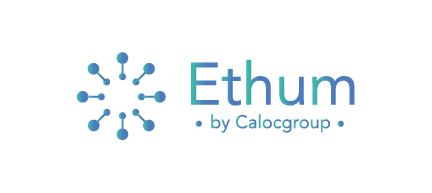Achieving sustainable growth is a top priority for companies of all sizes. While traditional marketing strategies still hold their ground, the dynamic nature of the digital era has ushered in a new era of marketing known as growth marketing.
Unlike conventional marketing, growth marketing focuses on sustainable and scalable strategies to drive continuous business expansion. Whether you’re a startup or an established enterprise, understanding the core principles and implementing effective growth marketing techniques can be the key to unlocking your business’s true potential.
Understanding Growth Marketing
Growth marketing revolves around the idea of utilizing data-driven strategies, experimentation, and continuous optimization to achieve rapid and sustainable business growth. It emphasizes a holistic approach that combines marketing, product development, and customer experience to drive results. By leveraging various digital channels and tools, businesses can create personalized and targeted campaigns that resonate with their audience, ultimately leading to increased user acquisition, retention, and revenue.
Building a Solid Foundation
To kickstart your growth marketing journey, it’s essential to lay a solid foundation. This includes clearly defining your business goals, identifying your target audience, and understanding their pain points and preferences. Conducting thorough market research and competitive analysis can provide valuable insights into consumer behavior, market trends, and your competitors’ strategies. This information forms the basis for developing a robust growth marketing plan that aligns with your business objectives.
Implementing Data-Driven Strategies
Data is the cornerstone of effective growth marketing. By leveraging various analytics tools and platforms, businesses can gather valuable insights into consumer behavior, campaign performance, and overall market trends. These insights enable marketers to make informed decisions, optimize their strategies in real time, and personalize their approach to cater to the specific needs and preferences of their target audience. A/B testing, user behavior analysis, and customer journey mapping are some of the key practices that help in refining marketing efforts and enhancing overall ROI.
Leveraging Multi-Channel Marketing
In the digital age, consumers interact with brands across various online channels. A successful growth marketing strategy involves leveraging multiple channels such as social media, email marketing, search engine optimization (SEO), content marketing, and paid advertising to create a cohesive and engaging brand experience. By maintaining a consistent brand voice and message across all channels, businesses can effectively reach and engage their target audience at every touchpoint, thereby increasing brand awareness and customer loyalty.
Focusing on Customer Retention
While customer acquisition is important, retaining existing customers is equally crucial for sustainable growth. Implementing customer retention strategies such as personalized communication, loyalty programs, and exclusive offers can foster long-term relationships and encourage repeat purchases. Building a strong community around your brand and actively soliciting and responding to customer feedback can help create a loyal customer base that not only provides repeat business but also serves as a brand advocates, driving organic growth through word-of-mouth marketing.
Embracing Agile Methodology
Growth marketing thrives on agility and adaptability. By embracing an agile methodology, businesses can quickly respond to market changes, consumer preferences, and emerging trends. This approach involves iterative testing, rapid experimentation, and continuous optimization to identify the most effective strategies and tactics. Through constant monitoring and analysis of key performance indicators (KPIs), businesses can make data-driven adjustments to their campaigns in real time, ensuring maximum impact and ROI.
Measuring and Evaluating Success
To gauge the effectiveness of your growth marketing initiatives, it’s crucial to establish key performance indicators and regularly monitor and evaluate your performance against these metrics. Tracking metrics such as customer acquisition cost (CAC), customer lifetime value (CLV), conversion rates, and retention rates can provide valuable insights into the overall health and success of your marketing efforts. By analyzing these metrics, businesses can identify areas for improvement and make data-backed decisions to optimize their growth marketing strategies further.
Growth marketing is not just about acquiring new customers; it’s about fostering sustainable business growth through a strategic and data-driven approach. By understanding your audience, leveraging data insights, embracing agility, and prioritizing customer retention, you can create a powerful growth marketing strategy that drives continuous business expansion and positions your brand for long-term success in the ever-evolving digital landscape.

